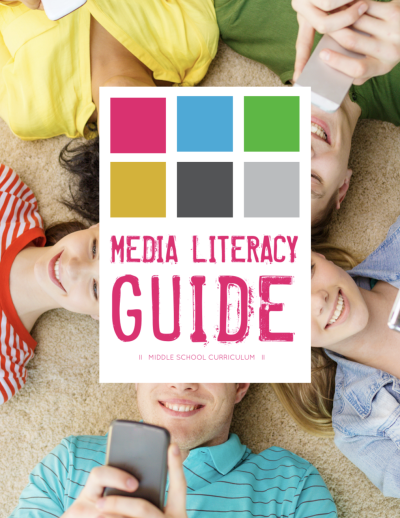Engage learners in exploring substance abuse prevention using the pedagogy of media literacy
THE MEDIA LITERACY GUIDE
Created by Renee Hobbs and the Media Education Lab and co-sponsored by Drug Free Pennsylvania. Access the PDF from the Pennsylvania Department of Drug Prevention Programs.
 Renee Hobbs and a team of Pennsylvania educators developed The Media Straight Up to bring together literacy and substance abuse prevention goals for middle-school students. The curriculum meets PA standards for health and English language arts.
Renee Hobbs and a team of Pennsylvania educators developed The Media Straight Up to bring together literacy and substance abuse prevention goals for middle-school students. The curriculum meets PA standards for health and English language arts.
According to the Office of National Drug Control Policy, a media literacy approach can support substance abuse prevention goals. Media literacy can empower youth to be positive forces of social change, which benefits drug prevention efforts by teaching youth:
- To recognize how media messages influence them. Students can internalize the skills they need to protect themselves against messages about drugs or unhealthy lifestyle choices.
- To develop critical thinking. When youth learn to analyze media, they can uncover the values messages about drugs embedded in media and decide whether to accept or reject those messages.
- To foster healthy self-esteem. Students skilled and knowledgeable about the media and their techniques can use media to creatively produce messages of their own. Encouraging healthy self-esteem is one of the “anti-drugs” that reduce children’s vulnerability to drug use.